Medicine
Medicine is the science and practice of diagnosing, treating, and preventing disease. It encompasses a variety of health care practices that are aimed at maintaining and restoring health. The field of medicine includes a wide range of disciplines, such as anatomy, physiology, pharmacology, and pathology, among others.
Branches of Medicine
Medicine can be divided into several branches, including:
- Internal Medicine: Focuses on the diagnosis and treatment of diseases affecting internal organs.
- Surgery: Involves operative procedures to treat injuries, diseases, and deformities.
- Pediatrics: Deals with the medical care of infants, children, and adolescents.
- Obstetrics and Gynecology: Specializes in pregnancy, childbirth, and female reproductive health.
- Neurology: Focuses on disorders of the nervous system.
- Cardiology: Deals with the study and treatment of disorders of the heart and blood vessels.
Study Guide
If you're studying medicine, here are some key concepts to focus on:
- Anatomy and Physiology: Understand the structure and function of the human body and its systems.
- Pharmacology: Learn about the use and effects of drugs in the treatment of diseases.
- Pathology: Study the nature and causes of diseases, including their effects on the body.
- Medical Ethics: Explore the moral and ethical issues in the practice of medicine.
- Patient Care: Acquire skills for communicating with patients, taking medical histories, and performing physical examinations.
- Diagnostic Techniques: Understand the tools and methods used to diagnose diseases, such as imaging techniques and laboratory tests.
- Treatment Modalities: Familiarize yourself with various treatment options, including medications, surgery, and other interventions.
By mastering these concepts, you'll gain a solid foundation in the field of medicine and be better prepared to pursue further studies or a career in healthcare.
.◂Science Worksheets and Study Guides Eighth Grade. Organic compounds
Study Guide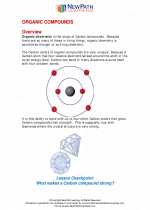 Organic compounds
Organic compounds  Worksheet/Answer key
Worksheet/Answer key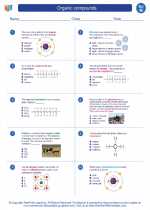 Organic compounds
Organic compounds  Worksheet/Answer key
Worksheet/Answer key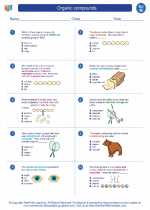 Organic compounds
Organic compounds  Worksheet/Answer key
Worksheet/Answer key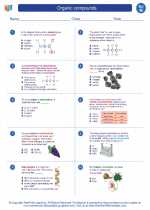 Organic compounds
Organic compounds  Vocabulary/Answer key
Vocabulary/Answer key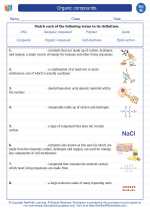 Organic compounds
Organic compounds  Vocabulary/Answer key
Vocabulary/Answer key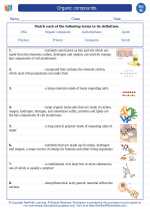 Organic compounds
Organic compounds 

 Worksheet/Answer key
Worksheet/Answer key
 Worksheet/Answer key
Worksheet/Answer key
 Worksheet/Answer key
Worksheet/Answer key
 Vocabulary/Answer key
Vocabulary/Answer key
 Vocabulary/Answer key
Vocabulary/Answer key

The resources above cover the following skills:
Physics: Students will use scientific skills and processes to explain the interactions of matter and energy and the energy transformations that occur.
Thermodynamics: Identify and explain that heat energy is a product of the conversion of one form of energy to another.
Identify and describe the various forms of energy that are transformed in order for systems (living and non-living) to operate: Chemical - Flashlight-Light; Mechanical - Pulleys-Motion; Solar/Radiant - Solar calculator; Chemical - Plant cells.